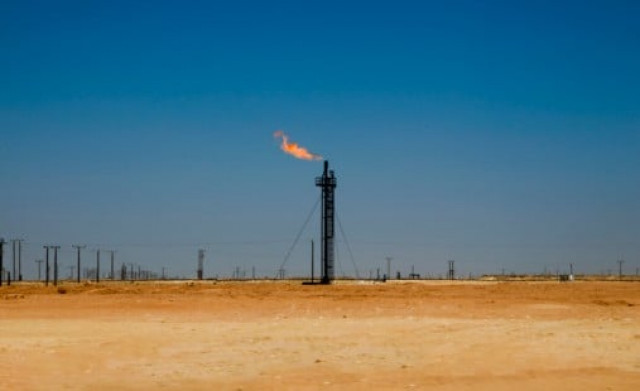18th Amendment: Quetta holds exploration permits hostage
Refuses to lift ban on new projects till Islamabad devolves mineral rights

PHOTO: REUTERS
As the federal government refuses to devolve authority over oil and natural gas to the provincial governments, Balochistan has decided to hold exploration and development activity in the province hostage, refusing to withdraw its ban on new exploration projects until the federal government devolves authority over the sector to Quetta.
“Yes, Chief Minister Abdul Malik Baloch has imposed a ban on new projects of oil and gas exploration in the entire province which will not be lifted until our demands for being given our constitutionally due role in exploration is recognized by Islamabad,” said Jan Buledi, spokesperson for the Balochistan government.
He added that Quetta has already taken up Islamabad’s refusal to implement Article 172 (3) of the constitution at the Council on Common Interests (CCI), the highest decision making body that includes representatives from all five provincial governments and the federal government.
Article 172 (3) gives joint control over oil and natural gas resources to the provinces and the federal government. Yet the Federal Ministry of Petroleum and Natural Resources allocated 21 new blocks for oil and gas development in Balochistan to local and foreign companies without Quetta’s consent, which Balochistan considers to be a clear breach of the constitution.
Quetta also feels that Islamabad is dragging its feet in implementing the landmark amendment to the constitution that devolved a considerable amount of political and financial autonomy to the provinces.
“Of course there is resistance to the implementation of 18th constitutional amendment in letter and spirit,” said Kaiser Bengali, head of the Balochistan Chief Minister’s Policy Reform Unit and the chief economic advisor to the chief minister.
“The 18th Amendment deprived the federal government of some of its powers. It is natural that they are not giving that up willingly. However, the provinces should keep struggling for their constitutionally guaranteed rights. We are playing our role in the struggle to achieve our economic rights promised in Article 172.”
Yet the federal government has several tools up its sleeve when it comes to dragging its feet on devolution. It has refused to abolish or transfer many departments that, by law, it no longer has any jurisdiction over, which is what creates many problems in the first place. And it uses Islamabad’s unilateral agenda-setting power at CCI meetings to ensure that the provinces never have the formal opportunity to lodge their complaints over the refusal to implement the constitutional devolution of power.
The governments of Sindh, Khyber-Pakhtunkhwa and Balochistan all believe that the federal government has no intention of giving them their rightful control over mineral resources within their provinces. Their evidence for that belief is the fact that the federal Ministry for Petroleum and Natural Resources has consistently failed to include any discussion over natural resources onto the CCI agenda, including the one for the meeting last month.
Balochistan and Sindh collectively produce well over 90% of the natural gas in Pakistan, with Khyber-Pakhtunkhwa accounting for the bulk of the remainder. Both governments are seeking greater control over those resources, as is their constitutional right, said Bengali.
Published in The Express Tribune, April 7th, 2015.



















COMMENTS
Comments are moderated and generally will be posted if they are on-topic and not abusive.
For more information, please see our Comments FAQ